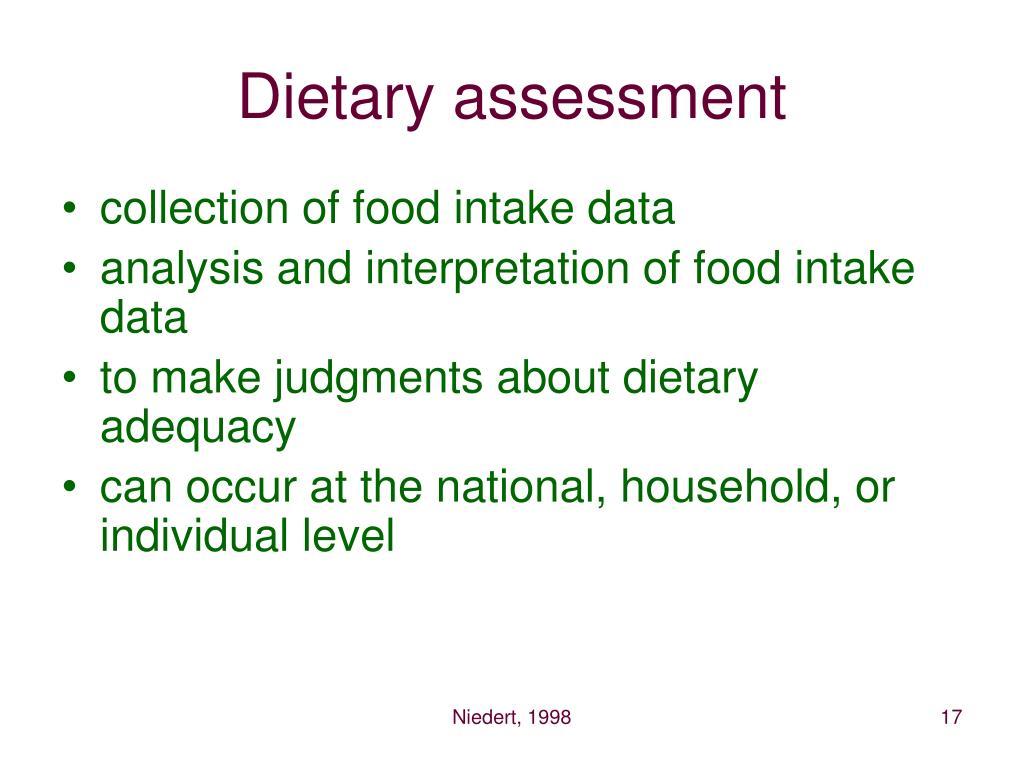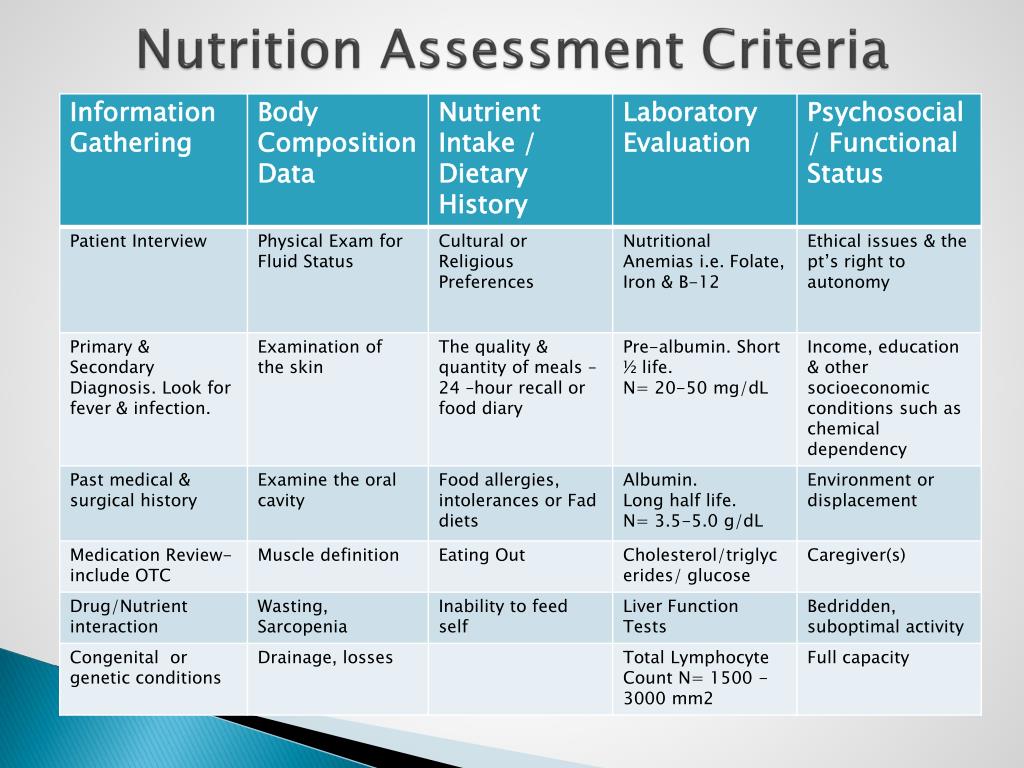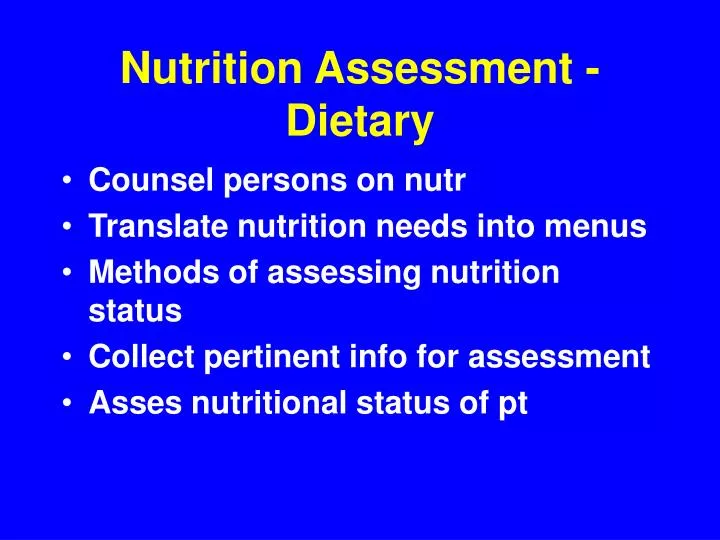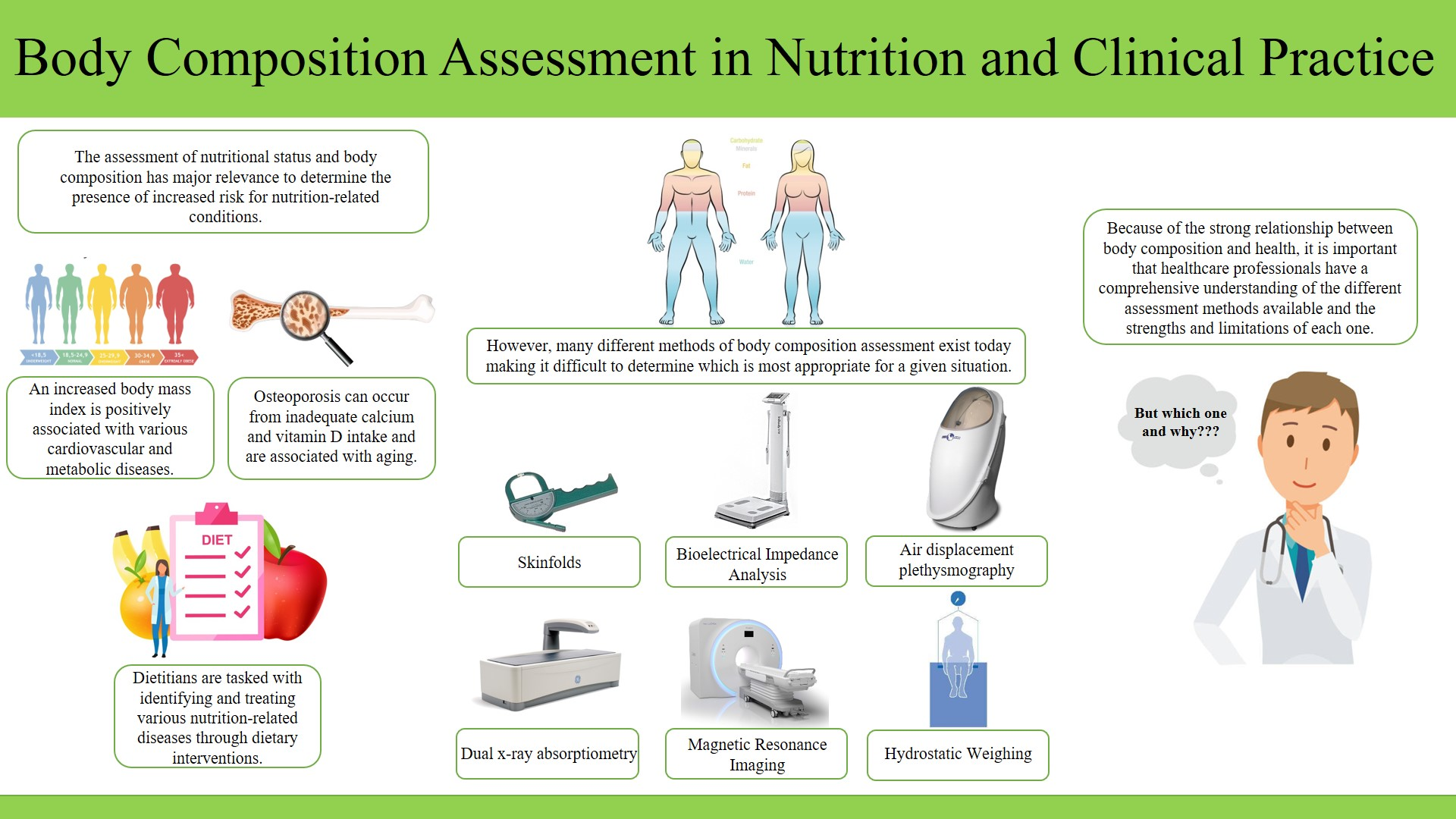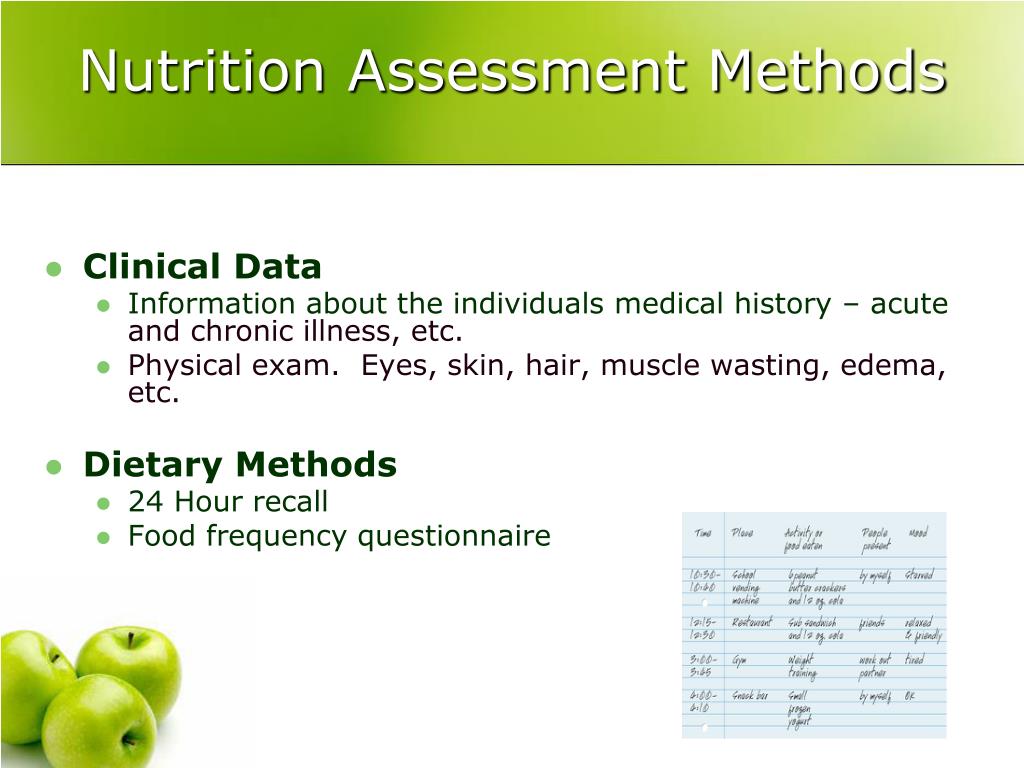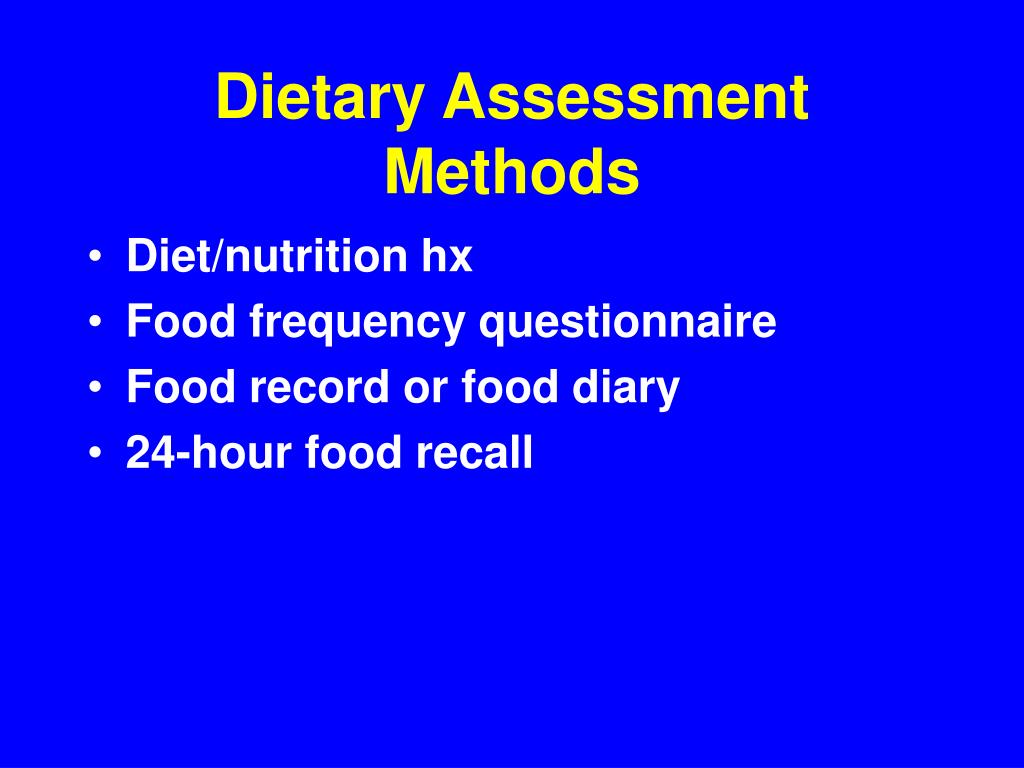A Dietary Assessment Can Provide Useful Information About
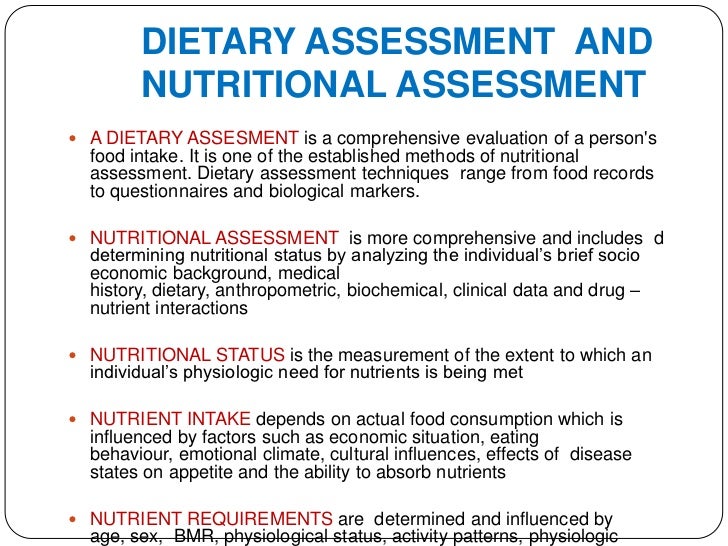
In an era of increasing awareness regarding the intricate relationship between diet and overall health, dietary assessments are emerging as crucial tools for individuals and healthcare professionals alike. These assessments, which range from simple questionnaires to in-depth analyses of eating habits, provide a wealth of information that can be used to improve health outcomes and prevent chronic diseases.
This article explores the significance of dietary assessments, delving into the types of information they provide, the methods used to conduct them, and their potential impact on individual well-being and public health strategies.
Understanding Dietary Assessments
A dietary assessment is a comprehensive evaluation of an individual's food and nutrient intake. It aims to capture a detailed picture of what a person typically eats and drinks, including portion sizes, frequency of consumption, and timing of meals. This information is then analyzed to determine the individual's nutritional status and identify any potential deficiencies or excesses.
Dietary assessments are not one-size-fits-all. The most appropriate method depends on the specific goals of the assessment, the characteristics of the individual being assessed, and the resources available.
Methods Used in Dietary Assessments
Several methods are commonly used to conduct dietary assessments. Food records, also known as food diaries, require individuals to meticulously record everything they eat and drink over a specific period, typically ranging from a few days to several weeks. This method is considered relatively accurate but can be burdensome for participants.
24-hour recalls involve asking individuals to recall everything they consumed in the previous 24 hours. These are often conducted by trained interviewers and are less demanding for participants than food records. However, they rely on memory and may not capture habitual eating patterns.
Food frequency questionnaires (FFQs) ask individuals how often they consume specific foods or food groups over a defined period, such as a month or a year. FFQs are relatively quick and easy to administer and can be used to assess long-term dietary patterns, though they provide less detail than food records or 24-hour recalls.
Dietary history combines elements of food records, 24-hour recalls, and FFQs to provide a comprehensive picture of an individual's dietary habits over time. This method is often used in clinical settings to assess nutritional status and identify potential dietary risks.
Information Gained from Dietary Assessments
Dietary assessments provide a range of valuable information. They can identify nutrient deficiencies or excesses, such as low intakes of vitamin D or excessive consumption of saturated fat.
They can also reveal patterns of food consumption, such as high intake of processed foods or infrequent consumption of fruits and vegetables. This information can be used to identify areas where dietary changes are needed to improve health.
Furthermore, dietary assessments can help to assess adherence to dietary guidelines or recommendations. For instance, they can determine whether an individual is meeting the recommended daily intake of fiber or limiting their sodium intake to the recommended level.
Applications and Impact
The information gleaned from dietary assessments has numerous applications. In clinical settings, they are used to assess the nutritional status of patients, identify individuals at risk of malnutrition, and develop personalized dietary plans to manage chronic diseases such as diabetes, heart disease, and obesity.
Public health organizations use dietary assessment data to monitor the dietary habits of populations, identify nutritional problems, and develop targeted interventions to promote healthy eating. The Centers for Disease Control and Prevention (CDC), for example, uses data from national dietary surveys to track trends in food consumption and nutrient intake in the United States.
Dietary assessments also play a crucial role in research, providing valuable data for studies investigating the relationship between diet and health outcomes. Researchers use dietary assessment data to examine the effects of different dietary patterns on the risk of developing chronic diseases, the impact of dietary interventions on weight loss, and the influence of nutrition on cognitive function.
Limitations and Considerations
While dietary assessments are valuable tools, they are not without limitations. All methods are susceptible to reporting errors, such as underreporting of food intake or inaccurate estimation of portion sizes. Recall bias, where individuals struggle to accurately remember what they ate, is a particular concern with 24-hour recalls and food frequency questionnaires.
Furthermore, dietary assessments provide a snapshot of dietary intake at a specific point in time and may not reflect an individual's usual eating habits. It's essential to use validated assessment tools and to consider the limitations of each method when interpreting the results.
The National Institutes of Health (NIH) provides resources and guidance on dietary assessment methodologies, emphasizing the importance of selecting the appropriate method for the research question and considering the potential sources of error.
Conclusion
Dietary assessments are powerful tools for understanding an individual's eating habits and their impact on health. By providing detailed information about food and nutrient intake, these assessments can help identify areas where dietary changes are needed to improve overall well-being, manage chronic diseases, and promote public health. As awareness of the importance of nutrition continues to grow, dietary assessments are poised to play an increasingly vital role in helping individuals make informed choices about their diets and achieve optimal health.
